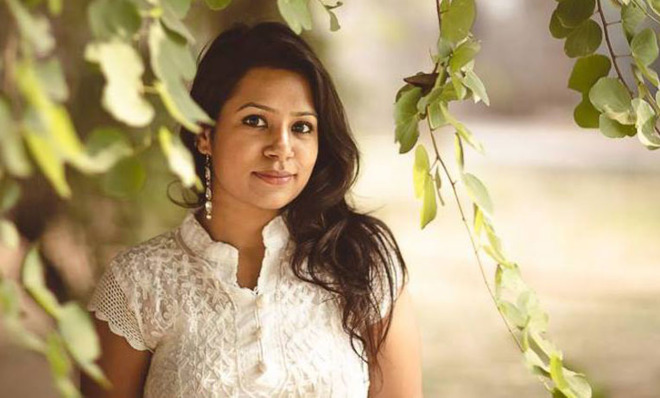How one woman is standing up for India's abused husbands
Did a law against dowries backfire?

A free daily email with the biggest news stories of the day – and the best features from TheWeek.com
You are now subscribed
Your newsletter sign-up was successful

Indian men live in legal fear. Disgruntled wives are using a protective law in reverse to extort money from their in-laws and land their husbands in jail. But now one woman wants to call an end to it.
Deepika Bhardwaj is a filmmaker who has devoted herself to exposing abuse of married men and their relatives by women using dowry laws in reverse. She calls the men "martyrs of marriage," and she had a ringside seat to two marriages that lasted just a few months before ripping the families apart.
"A close friend and my cousin went through a torrid time in 2011. It left a bitter taste, and that's when I realized that some women were misusing a law to their advantage. It is all about money, extortion and blackmail," says Bhardwaj.
The Week
Escape your echo chamber. Get the facts behind the news, plus analysis from multiple perspectives.

Sign up for The Week's Free Newsletters
From our morning news briefing to a weekly Good News Newsletter, get the best of The Week delivered directly to your inbox.
From our morning news briefing to a weekly Good News Newsletter, get the best of The Week delivered directly to your inbox.
She began traveling around the country — visiting jails, counseling centers and courts, while touching base with affected families — to make a documentary. Martyrs of Marriage chronicles cases where men have been harassed, jailed and even driven to suicide by a law that has been "grossly misused."
Dowry — a payment in cash, property or gifts given to a bridegroom's family along with the bride during marriage — is illegal in India but widely practiced. To combat domestic violence and protect women from dowry harassment, lawmakers drafted a provision called 498A of the Indian Penal Code in the early '80s.
This proviso protects women from potential harassment by their husbands and even family members. The jail term extends up to three years. Bail is a rarity.
Over the years, this section has come under severe criticism. Women and their families have distorted it to extract money and harass their husbands. Some will write fake letters demanding dowries on behalf of their husbands, then use those letters as evidence of the illegal practice, or fake the symptoms of domestic violence.
A free daily email with the biggest news stories of the day – and the best features from TheWeek.com
"Many women have no compunctions in putting their husbands and in-laws through the torture of the criminal legal process. There are provisions in the law that are used as weapons rather than a shield by peeved wives," she says.
"That's what my fight is all about. If dowry is heinous crime, reverse dowry or legal extortion is nothing less. If we allow laws to become tools, I wonder what society are we going to be in — more corrupt, more morally degraded where relationships and crimes are bartered for money?" asks Bhardwaj.
Recounting hundreds of case she has documented in two years of research, Bhardwaj says she has had support from men and those who have been battered by the misuse of 498A, as the law is commonly known.
"I realize that we are a patriarchal society. However, with changing times, women have changed and today, there are many women who know their rights and also know very well how to abuse those rights," declares Bhardwaj.
According to the National Crime Records Bureau over 220,000 people were arrested in India in 2013 under Section 498A, accounting for 4.5 percent of total crimes committed, an unusually high rate.
Conviction rates were low, however, and data showed that more than 80 percent of the 498A cases ended in acquittal, and that a large number of cases were withdrawn by the victims.
How does Bhardwaj's campaign sit in a country where sexual violence is endemic and crimes against women a constant?
"I am not popular with women rights activists… It does not go well with them," she says. "Of course, I condemn violence against women but this law is misused. I have received support from men and families who have been victims of this law."
The "misuse" of the law has now caught the attention of India's Supreme Court, which has warned the police to exercise caution while invoking 498A and detailed a thorough checklist to be followed before ordering arrests.
Bhardwaj does not have much faith in court pronouncements. "There have been countless observations by higher courts. Nothing has worked."
In Bhardwaj's reckoning, 498A is not a case between husband and wife.
"It's a case between husband and state where state fights on wife's behalf," she says. "498A can be filed anytime after marriage — even after 22 years."
This story was originally published on Vocativ.com: How one woman is standing up for India's abused husbands
More from Vocativ...
-
 Health insurance: Premiums soar as ACA subsidies end
Health insurance: Premiums soar as ACA subsidies endFeature 1.4 million people have dropped coverage
-
 Anthropic: AI triggers the ‘SaaSpocalypse’
Anthropic: AI triggers the ‘SaaSpocalypse’Feature A grim reaper for software services?
-
 NIH director Bhattacharya tapped as acting CDC head
NIH director Bhattacharya tapped as acting CDC headSpeed Read Jay Bhattacharya, a critic of the CDC’s Covid-19 response, will now lead the Centers for Disease Control and Prevention